Legal Advocacy Taskforce
Introducing the Taskforce
WYCJ’s Legal Advocacy Taskforce uses the power of the law to transform and develop the interplay of human rights in the face of climate and environmental crises, with a view to achieving climate justice.
The Taskforce seeks to create a cutting-edge space for legal inquiry and dialogue, where young legal professionals can meaningfully contribute to the legal literature centering climate change and human rights, all the while growing their skills and getting a first glimpse into international practice. Composed of young legal minds from all over the world, the force undertakes relevant, in-depth legal research to understand and address some of the major roadblocks facing the protection of the environment and human rights from a legal perspective.
Through legal research and advocacy, the Taskforce is dedicated to producing outputs that advocate for innovative and progressive legal arguments in the pursuit of climate justice.
The Taskforce engages with the international legal system on numerous fronts, including the advisory proceedings on climate change before the International Court of Justice, the International Tribunal for the Law of the Sea, and the Inter-American Court of Human Rights.
Disclaimer
Our resources are under constant development to make them more effective, more accessible and more comprehensive. The documents on this page may therefore not always represent the latest scholarly developments on the initiative. Please reach out if you have any further questions via hi@wy4cj.org
Discover the work of the Legal Advocacy Taskforce
CIEL & WYCJ with the support of PISFCC publish ‘Top Arguments to Watch For’ from the Written Statements and Comments submitted to the ICJ
Climate Justice Proceedings: Top Arguments to Watch For in the Written Submissions
On 29 March 2023, the UN General Assembly requested the International Court of Justice (ICJ) to provide an Advisory Opinion on States' obligations regarding climate change. The ICJ has now, for the first time in history, the mandate to clarify the legal obligations of States with regard to climate change under multiple sources of international law. The significance of this process cannot be overstated.
An unprecedented number of States and international organizations have participated in the proceedings, with the Court receiving a record 91 initial written submissions and 62 in the subsequent comments phase, when States and international organizations that provided initial input could comment on one another’s written statements. Following the completion of the written phase, the Court held two weeks of oral hearings, from 2 to 13 December 2024, in which a record ninety-eight States and twelve international organizations expressed their intention to participate.
World’s Youth for Climate Justice and Center for International Environmental Law with the support of Pacific Islands Students Fighting Climate Change published “Climate Justice Proceedings at the ICJ: Top Arguments to Watch For in the Written Submissions” that unpacks some of the key arguments addressed in the written submissions, presenting select excerpts to provide a snapshot of critical legal questions at the heart of the ICJ AO. It focuses on the most critical legal arguments, including questions of human rights obligations, transboundary harm, and the duties owed to future generations.
It presents key contrasting positions of major polluters and the vast majority of participants, especially concerning issues that have crucial implications for climate justice. The aim is to provide insight into how countries and international organizations plan to build – or threaten to undermine – a safe and healthy world for present and future generations.
Learn how countries and international organisations are shaping the legal landscape for climate justice and defining obligations to ensure a safe and healthy world for current and future generations.
During the oral hearings, we unpacked the arguments every day and offer you here a compendium of all the daily debriefs so you have the central arguments of each participating State and international organization at your fingertips!
CIEL and ClientEarth with the support of PISFCC and WYCJ publish key takeaways from the ITLOS Advisory Opinion
The key takeaways are to be taken into consideration in the ongoing advisory proceedings before the International Court of Justice.
Last month, the International Tribunal for the Law of the Sea (ITLOS) issued its landmark Advisory Opinion (AO) on the protection of the marine environment from pollution caused by climate change. The Opinion is a groundbreaking first in international law — clarifying the legal obligations of States to address climate change as a crisis at the intersection of two critical global commons: the ocean and the atmosphere. ITLOS clearly stated that greenhouse gas emissions pollute the marine environment and States must take all necessary measures to prevent, reduce, and control them.
This opinion is the first of three international advisory opinion processes on States’ responsibilities to confront the climate crisis. This opinion sets the floor — not the ceiling — for future decisions on climate and international legal duties; as the first advisory opinion, the ITLOS Opinion has the potential to shape the forthcoming ones as well.
In light of the above, today, together with the Center for International Environmental Law (CIEL), ClientEarth, and the Pacific Islands Students Fighting Climate Change (PISFCC) we published key takeaways from the ITLOS AO, which could - and should - be taken into consideration in the climate advisory proceeding before the International Court of Justice.
The Legal Advocacy Taskforce Team
-

Aditi Shetye
-

Theresa Amor-Jürgenssen
Editors for the Legal Blog
-

Erika Vite, Editor
Erika is currently studying Law at Universidad Panamericana in Mexico. Throughout her academic journey, she has shown a strong interest in International Human Rights Law, actively participating in academic competitions, seminars, and conferences, as well as interning at various NGOs.
Email: erika@wy4cj.org
-

Linn Pfitzner, Editor
Linn has an interdisciplinary background in international law and politics and holds an LL.M. in Global Environment and Climate Change Law from the University of Edinburgh. They have experience developing climate policy in the public sector, having worked at the European Parliament and the German Agency for International Cooperation (GIZ). Linn’s research interests include operationalising intergenerational fairness in climate policy-making and finding equitable legal solutions for addressing non-economic loss and damage.
Email: linn@wy4cj.org
-

Maria-Christina Achilleoude, Editor
Maria-Christina Achilleoude has completed both a Bachelor of Laws and a Master of Laws at the London School of Economics & Political Science. She also holds a Master of Arts from the Courtauld Institute of Art (London) where she specialised in Global Conceptualism. Her interests lie in more-than-human rights, environmental law, public international law and critical theory. Her current research explores the potential of advancing more-than-human right approaches to articulate an ecocentric conception of climate justice and the limitations of these approaches in environmental and climate justice litigations.
Email: maria-christina@wy4cj.org
-

Eleonora Raus, Editor
Eleonora Raus has completed a Bachelor of Laws at University College London and a Master of Laws at the London School of Economics & Political Science. Her interests lie in human rights, environmental law and public international law. Currently she works as a paralegal at a law firm specialising in medical negligence and personal injury litigation, and has recently received a Lincoln's Inn scholarship to pursue the Bar in England.
Email: eleonora@wy4cj.org
-

Robin Happel, Editor
Robin is a freelance writer and has previously served as a Global Goals Ambassador for Climate Action for the UN Association and Expert Reviewer for the AR6 in addition to volunteering with WYCJ. She is originally from east Tennessee, and is passionate about supporting a just transition for frontline and fenceline communities.
Email: robin@wy4cj.org
Our Legal Experts at the Oral Hearings
-

Aditi Shetye
Aditi Shetye, Lead of Legal Advocacy & Academic Taskforce, will be in The Hague from 30 November to 7 December.
Email: aditi@wy4cj.org
-

José Rodríguez
José Rodríguez, Latin America front coordinator, will be in The Hague from 2 to 13 December.
Email: jose@wy4cj.org
-
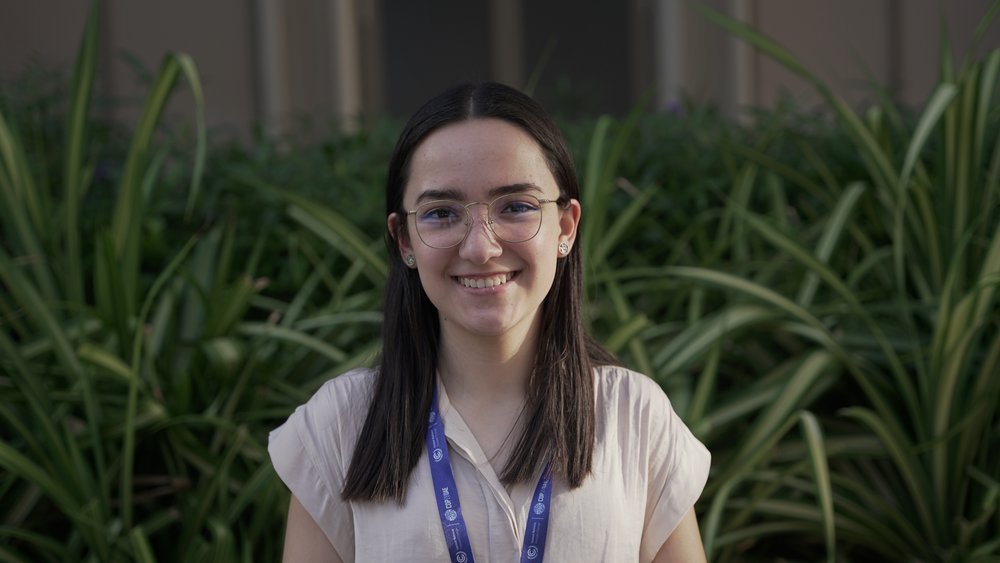
Mariana Campos
Mariana Campos, Latin America Deputy Front Coordinator, will be in The Hague from 2 to 13 December.
Email: mariana@wy4cj.org
-

Prajwol Bickram Rana
Prajwol Bickram Rana, Membership Engagement Coordinator, will be in The Hague from 1 to 13 December.
Email: prajwol@wy4cj.org
-

Theresa Amor-Juergenssen
Theresa Amor-Juergenssen, Legal Advocacy Deputy, will be in The Hague from 1 to 13 December.
Email: theresa@wy4cj.org
“There are millions of people all around the world who are already suffering from the impacts of climate change. Denying this fact could be interpreted by some to be a crime against humanity."
— Ian Fry, Tuvalu representative for the COP25 climate change talks.
Join the fight!
If you are a young lawyer, a stubborn optimist seeking to join the fight for climate justice, and have experience in international law, human rights, and/or environmental law: we need you!
Join us, and use the power of the law to create a bright future!
Legal Advocacy Taskforce Gallery

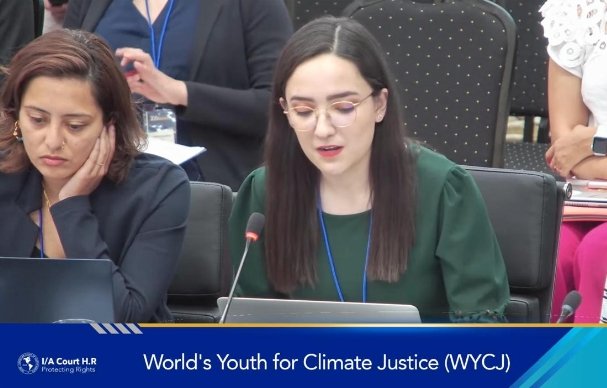
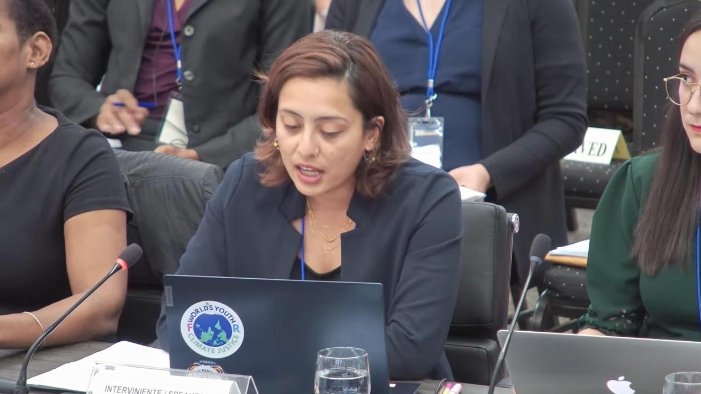
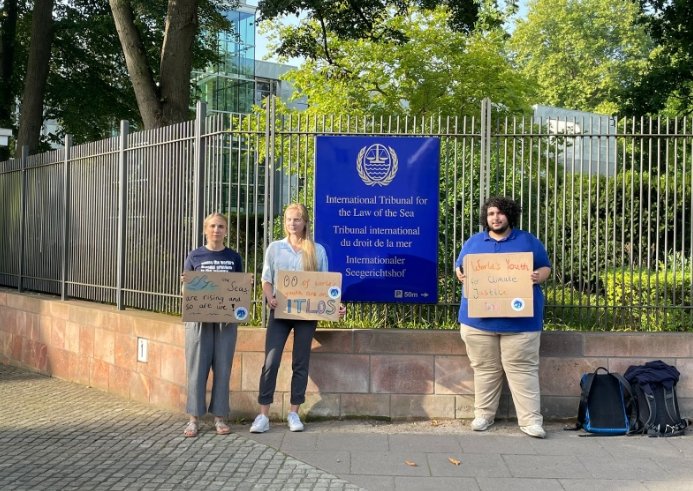
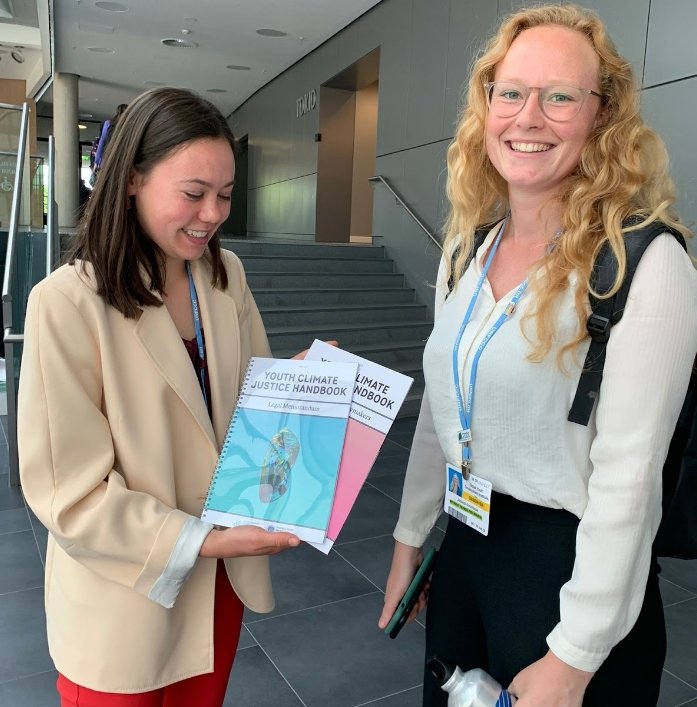
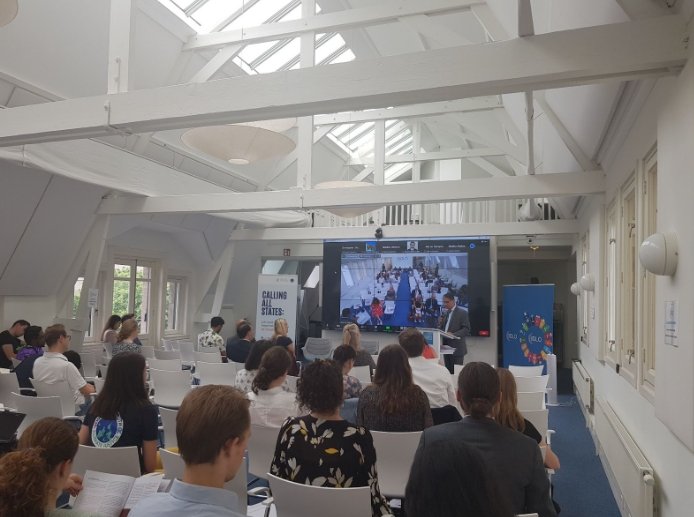
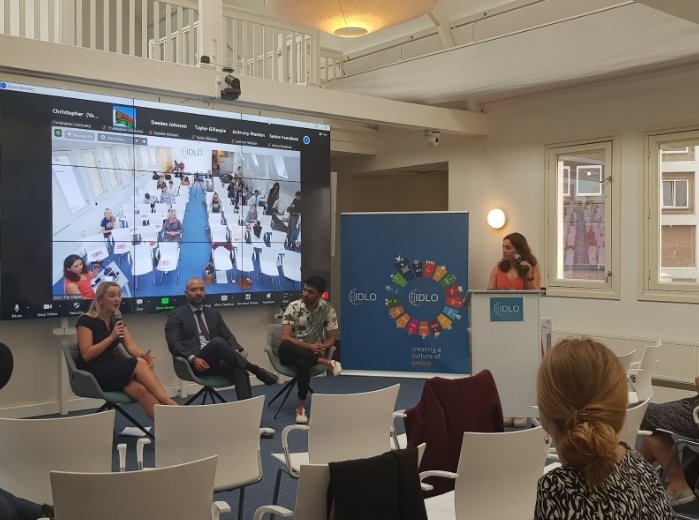
Disclaimer
The two photographs on which WYCJ campaigners are speaking in front of the IACtHR are still frames of the video “Public Hearing of the Advisory Opinion on Climate Emergency and Human Rights. Day 3-Part 1" by Corte Interamericana de Derechos Americanos, used under CC BY-NC-SA 4.0. To view a copy of this license, visit this page.





